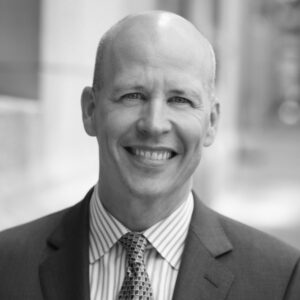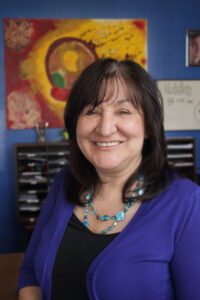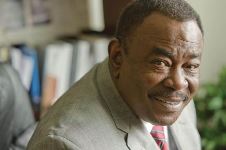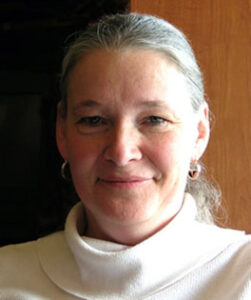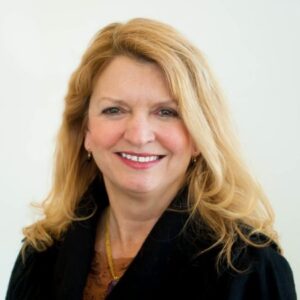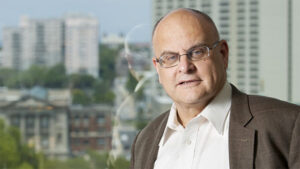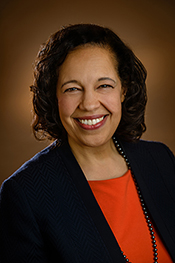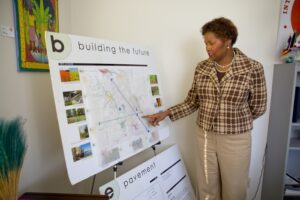Each month we chat with a leader from the nonprofit or social investment space who shares their story and perspective. Here are some of our favorite pieces of advice from 2018:
1. On authentic conversations
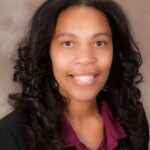 “Approach every conversation with an open mind and an open heart. If we come in thinking we already know everything and that we are right, then we search for things that validate what we already believe, or guide them to say what wewant them to say. It is crucial to hear what people are saying and their intention behind what they are saying.”
“Approach every conversation with an open mind and an open heart. If we come in thinking we already know everything and that we are right, then we search for things that validate what we already believe, or guide them to say what wewant them to say. It is crucial to hear what people are saying and their intention behind what they are saying.”
Camarrah Morgan, Fisher Foundation, Detroit
2. On taking notes
“It may sound simple, but one trait of a successful person is someone who’s willing to take notes. Entrepreneurs are smart, but they have a lot of things on their brain, so they need to write it down. They know they don’t know everything, and they want to know more. They ask a lot of questions, they’re good listeners, and they’re taking notes.”
Maxine Clark, Clark-Fox Family Foundation, St. Louis
3. On balancing mission and profit
“I think we’re all on a continuum where some people are motivated in their work by profit and some are motivated in their work by mission. Quite frankly, I think we need both – one isn’t better than the other. A lot of people I meet in the nonprofit sector really understand what motivates them. They know what gets them excited to get out of bed every day. If you have that self-awareness about where you are on the continuum and what you really care about, then you can hopefully move your career in that direction.”
Eric Weinheimer, Forefront, Chicago
4. On cultural competency
“Probably the number-one way is that the majority of my staff are from the same community that we serve. Many of them actually came through our program. We believe in the indigenous leadership model. And we talk about having a balance of “roots and suits” – people who are rooted in the community and people who have professional training. The ideal staff person is someone who has both.”
Angela Reyes, Detroit Hispanic Development Corporation, Detroit
5. On re-defining manhood
“We’re not re-defining manhood as you and I know manhood. We’re re-defining manhood as they know manhood. You’re not a man because you’re running around in a gang. You’re not a man because you’re making money and giving it to somebody. You’re not a man because you made a baby. The ability to provide and take care of the baby and the family – that’s what makes you a man. The providing means more than just providing money; you have to give of your time. You have to be a change agent for the child. You have to help the child develop and grow.”
Halbert Sullivan, Fathers Support Center, St. Louis
6. On revitalization without gentrification
“We want rents to rise so we can pay off our loans, but at the same time we want to ensure that lower-income people can stay in their units. We want a lot of regional and national tenants to come in, but we also want to make sure we have below-market start-up spaces for local businesses. We want jobs to come in, but we also want to make sure a lot of those jobs are going to local residents. We find most people really do want to achieve the same goals we do – they just don’t necessarily have an easy pathway to do it. So we are creating some of those pathways through our side-by-side programs for housing, retail, and jobs.”
Sue Mosey, Midtown Detroit, Detroit
7. On the power of planning
“It’s not about a business plan; it’s about business planning. Sometimes parts of the plan don’t exactly align, and you’re going to have to re-group, but you’ve got to keep planning, planning, planning. If you’re ahead, that’s good. How much ahead? Why? Could that be increased? If you’re behind, no good. Why? What can we do to intervene?”
Wendy Baumann, Wisconsin Women’s Business Initiative Corporation, Milwaukee
8. On the future
“Today, there is a tendency for one group to focus on redistribution and another group to focus on growth, with questions of public wealth and public goods having a different meaning for each group. The future is going to belong to communities that can bring these issues together in an affirmative, future-facing manner.”
Jeremy Nowak, Author and Strategist
9. On opportunity zones
“It’s one thing to designate a geography; it’s another to find the transactions that deliver the biggest impact on the ground. Our job is to try to steer and partner and push and pull and drag and amplify and lead in ways that make sure that some of this unlocked capital reaches the harder spots.”
Lisa Mensah, Opportunity Finance Network, Washington, D.C.
10. On exploring your own backyard
“We’ve become regionally and nationally known for international flavor. I tell people this: If you get out of your car and go into these businesses, you can leave the United States and travel the world.”
Mary Clark, International Marketplace Coalition, Indianapolis
Tags: : Arts and Culture, Capital Solutions, Early Childhood Education, Health Care, Healthy Foods, Housing, Real Estate Solutions, Schools, Strategic Insights

